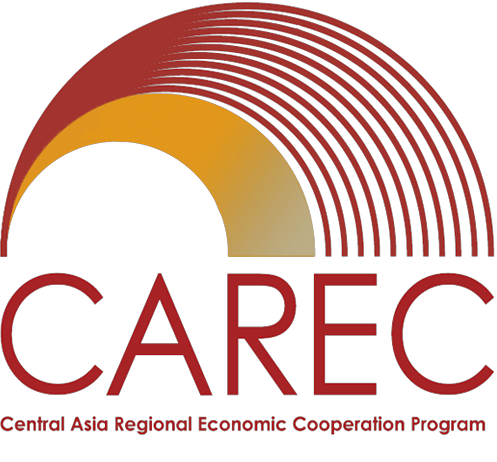Issuance of Sovereign and Private Sector Green/Climate Bonds: Lessons from the ASEAN
Background
Finance is key to promoting the Sustainable Development Goals (SDGs). Green and sustainability bonds are a key instrument to finance environmentally friendly businesses and projects. The government, public-private partnerships (PPPs) and large private businesses can all tap the bond market. Banks can also refinance loans financing environmentally friendly businesses and projects by either securitizing them or issuing green covered bonds. Thus, loans for smaller businesses can also be indirectly financed with green bonds.
A key challenge in green finance is to ensure that the proceeds are actually used for appropriate environmentally friendly purposes. Auditing and supervision required to do so involves costs, which can reduce the yield on green bonds. It can make the instruments less attractive for investors, defeating the purpose. It is thus essential to recognize the public good nature in green finance and provide policy support to reduce the cost.
The International Capital Market Association (ICMA) provides the Green Bond Principles (GBPs) as a global standard. The Climate Bonds Initiative (CBI) developed the Climate Bonds Standard and provides certification services for green bonds with fees. Many countries around the world, including some CAREC members, are creating national green bond principles that benchmark against the GBPs. Some regional groups of countries are promoting harmonized standards to enhance transparency, consistency, and uniformity in their green bond market.
The Association of Southeast Asian Nations (ASEAN) developed the ASEAN Green Bond Standards (ASEAN GBS) in collaboration with ICMA. ASEAN members are benchmarking their national standards against it to harmonize them. CAREC can learn from ASEAN’s experience and examine the benefit of developing a common standard for CAREC. Through the process, the members can learn about efforts made by one another and enhance their national standards. Common standards can promote CAREC green bonds as an asset class with transparency, consistency, and uniformity to attract global investments in CAREC. The members can mutually recognize one another’s green bonds and promote cross-border investments within CAREC.
Enabling and promoting cross-border bond investments requires overcoming other hurdles, such as the instruments’ credit and currency risks and institutional investors’ risk management requirements. Those hurdles can be high, particularly for intra-CAREC cross-border investments. However, it is not impossible to overcome them by starting with sovereign Green bonds. CAREC members can lay the ground for intra-CAREC cross-border investments in Green projects and businesses through mutual recognition.
Objectives
This regional workshop aims to achieve the following objectives:
- The workshop will enhance participants’ understanding of these instruments by providing a comprehensive overview of their structure, benefits, and contribution to SDGs. By examining ASEAN’s experience, participants will gain insights into successful case studies, key lessons
learned, and strategies for overcoming market development challenges. - A strong policy and regulatory framework is essential for fostering a robust green bond market. The workshop will explore ASEAN’s regulatory landscape, highlighting the alignment with international standards such as ASEAN GBS and GBP. Participants will also discuss the importance of transparency, compliance, and investor confidence in ensuring the credibility of green and climate bonds.
- Mobilizing private sector investment is key to expanding green finance. The workshop will address strategies to attract institutional investors, mitigate risks, and enhance returns while maintaining transparency and accountability. Best practices for project selection, impact reporting, and verification will be examined to ensure that green and climate bonds effectively contribute to sustainability objectives and prevent greenwashing.
- To support long-term market growth, the workshop will explore emerging innovations such as transition bonds, sustainability-linked bonds, and blended finance mechanisms. Strengthening regional cooperation through capacity-building initiatives, knowledge-sharing, and technical assistance will also be a priority. Finally, discussions will focus on overcoming barriers to green bond issuance and developing a roadmap with policy recommendations to scale up sustainable finance in the CAREC region.
Event Materials
Presentations
Session 1 – Eugene Wong – SFIA (ENG | RUS)
Session 1 – Natia Maisuradze – GEO (ENG | RUS)
Session 1 – Ninjin Altanbulag – MON (ENG | RUS)
Session 1 – Sanjarbek Murotov -UZB (ENG | RUS)
Session 1 – Wenhong Xie – PRC (ENG | RUS)
Session 1 – Zaura Zhumbayeva – KAZ (ENG | RUS)
Session 2 – Bayanjargal Byambasaikhan – MON (ENG | RUS)
Session 2 – Eugene Wong – SFIA (ENG | RUS)
Session 2 – Inarno Djajadi – FSA INO (ENG | RUS)
Session 2 – Meylis Dovletov – TKM (ENG | RUS)
Session 2 – Murzataeva Ainura Djumashevna – KGZ (ENG | RUS)
Session 2 – Sajjad Ali – PAK (ENG | RUS)
Session 2 – Shijun Dong – PRC (ENG | RUS)
Session 3 – Ainur Zhakupova – AIFC (ENG | RUS)
Session 3 – Anand Enkhbat – MON (ENG | RUS)
Session 3 – Arif Jalilov – AZE (ENG | RUS)
Session 3 – Group Activity (ENG | RUS)
Session 3 – Kaveena Maniam – SC MAL (ENG | RUS)
Session 3 – Kosintr Puongsophol – ADB (ENG | RUS)
Session 3 – Najmus Saqib Shabbir – PAK (ENG | RUS)
Session 3 – Nomindari Enkhtur – MON (ENG | RUS)
Session 3 – Takhmina Tolibi – TAJ (ENG | RUS)
Session 3 – Xiyang Cai – PRC (ENG | RUS)
Session 4 – Amar Lkhagvasuren – MON (ENG | RUS)
Session 4 – Amarbayasgalan Batbaatar (ENG | RUS)
Session 4 – Assel Muratbek – KAZ (ENG | RUS)
